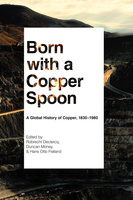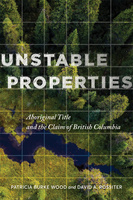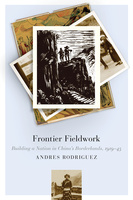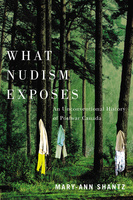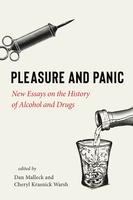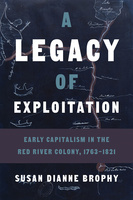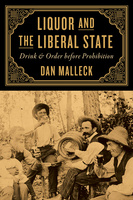Clara at the Door with a Revolver
The Scandalous Black Suspect, the Exemplary White Son, and the Murder That Shocked Toronto
Gender, race, and politics in late-nineteenth-century Toronto swirl around this riveting true story of the murder of Frank Westwood and the controversial acquittal of the main suspect, Clara Ford – a cross-dressing Black single mother.
Born with a Copper Spoon
A Global History of Copper, 1830–1980
Born with a Copper Spoon tells the fascinating and far-reaching story of one of the world’s most important metals.
Revival and Change
The 1957 and 1958 Diefenbaker Elections
Revival and Change is a compelling account of the elections, accomplishments, challenges, failures, and ultimate end of the Diefenbaker era.
Unstable Properties
Aboriginal Title and the Claim of British Columbia
Unstable Properties convincingly argues that the so-called land question in British Columbia cannot be resolved without understanding the fundamentally unstable ideological foundation of land and title arrangements on which the province rests.
Our Long Struggle for Home
The Ipperwash Story
In this disquieting story of broken promises and thwarted justice, the Anishinaabe of Stoney Point tell of the long struggle to reclaim their ancestral homeland, both before and after the Ipperwash crisis.
Making Muskoka
Tourism, Rural Identity, and Sustainability, 1870–1920
Making Muskoka traces the first decades of Muskoka’s transformation from Indigenous homeland to a part-time playground for tourists and cottagers and uncovers the consequences for those who lived there year-round.
Frontier Fieldwork
Building a Nation in China’s Borderlands, 1919–45
Frontier Fieldwork exposes the transformative power that early-twentieth-century fieldwork had in placing the Sino-Tibetan borderlands at the centre of China’s nation-making process and race to modernity.
What Nudism Exposes
An Unconventional History of Postwar Canada
What Nudism Exposes offers a convincing new perspective on postwar Canada by revealing how nudist clubs navigated the social and cultural changes of the 1950s, ’60s, and ’70s.
Lessons in Legitimacy
Colonialism, Capitalism, and the Rise of State Schooling in British Columbia
Lessons in Legitimacy examines the relationship between settler capitalism, state schooling, and the making of British Columbia.
A Cooperative Disagreement
Canada-United States Relations and Revolutionary Cuba, 1959–93
Agree to disagree? A Cooperative Disagreement demonstrates how Canada and the United States – neighbours by geography and close allies by design – successfully kept their differences over revolutionary Cuba from permanently damaging their relationship.
Converging Empires
Citizens and Subjects in the North Pacific Borderlands, 1867–1945
Converging Empires weaves a compelling history of the convergence of Indigenous peoples, Japanese immigrants, and colonial expansion in the Northern Pacific – encounters that made and remade these borderlands.
Pleasure and Panic
New Essays on the History of Alcohol and Drugs
Pleasure and Panic illustrates how attitudes toward drug and alcohol consumption are complicated by the politics, economics, and culture of their times.
Rare Merit
Women in Photography in Canada, 1840–1940
Rare Merit illuminates the impact of women as portraitists, travel documentarians, photojournalists, fine artists, hobbyists, and printers in the early years of photography in Canada.
A Legacy of Exploitation
Early Capitalism in the Red River Colony, 1763–1821
A Legacy of Exploitation recasts the Hudson’s Bay Company’s experiment at Red River as a reaction to Indigenous peoples’ autonomy, challenging collective historical fantasies of Canada as a glorious nation of adventurers.
Liquor and the Liberal State
Drink and Order before Prohibition
Cultural pastime, profitable industry, or harmful influence on the nation? Liquor and the Liberal State explores government approaches to drink and drinking in the late nineteenth and early twentieth centuries.


